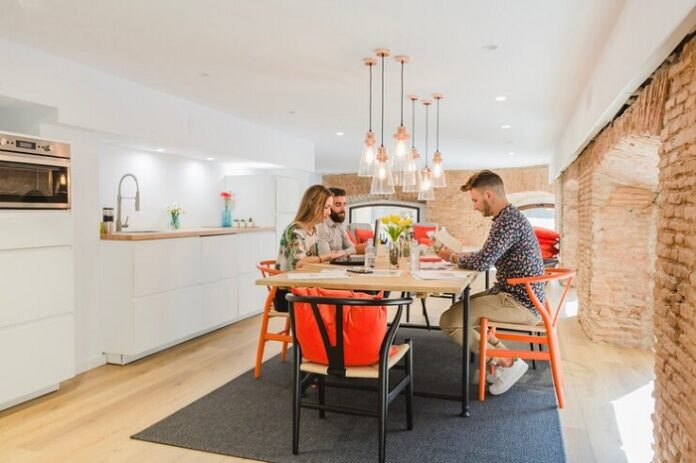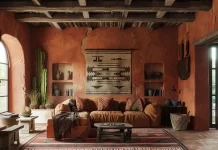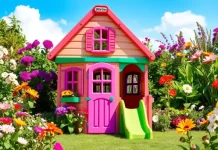Tiny Home and Apartment Living
In recent years, the allure of tiny home and apartment living has captured the hearts and minds of many individuals seeking a simpler, more affordable, and environmentally conscious lifestyle. The growing popularity of this minimalist approach to housing can be attributed to various factors, such as the rising cost of living in urban areas, the desire for a smaller ecological footprint, and the appeal of a clutter-free existence. Tiny homes and apartments offer a unique opportunity to embrace a more intentional way of living, focusing on the essentials and finding joy in the simple things. However, living in a small space also presents its own set of challenges, such as limited storage, the need for efficient design, and the requirement for creative solutions to maximize functionality. This article will explore the benefits and challenges of small space living, providing practical tips and ideas to help you create a comfortable, stylish, and efficient home in a tiny space.
Space-Saving Furniture and Storage Solutions
One of the most crucial aspects of successful tiny home and apartment living is the ability to maximize the available space. By incorporating space-saving furniture and implementing creative storage solutions, you can transform even the smallest of spaces into a functional and comfortable home. Multifunctional furniture is a key component of this strategy, with items such as sofa beds, storage ottomans, and convertible tables serving multiple purposes and helping to conserve valuable floor space. Loft beds and raised platforms are another excellent option, allowing you to utilize the vertical space in your home and create separate areas for sleeping, working, or relaxation. Wall-mounted shelves and storage units can also be used to keep your belongings organized and easily accessible without encroaching on your living area. Additionally, hidden storage solutions, such as under-bed storage containers and pull-out pantry systems, can help you keep your space clutter-free and maintain a sense of openness in your tiny home or apartment.
Decorating Tips for Small Spaces
Decorating a tiny home or apartment can be a delightful challenge, as it requires a creative approach to make the most of your limited space. One of the most effective strategies for creating the illusion of a larger space is to use light colors and mirrors. Pale walls, ceilings, and floors reflect light, making your home feel brighter and more expansive. Mirrors, when strategically placed, can also help to bounce light around the room and create a sense of depth. When selecting furniture for your small space, opt for pieces with clean lines and minimal ornamentation to maintain a sense of openness and simplicity. Minimalist decor can help to keep your home feeling uncluttered and serene, while still allowing you to express your personal style through carefully chosen accessories and artwork. Another crucial aspect of decorating a tiny home or apartment is the incorporation of natural light. Large windows, skylights, and glass doors can help to flood your space with sunlight, creating a warm and inviting atmosphere. When natural light is limited, the effective use of task lighting, such as table lamps, floor lamps, and under-cabinet lighting, can help to create a cozy ambiance and ensure that your home is well-lit and functional.
Efficient Kitchen and Bathroom Design
Kitchens and bathrooms are two of the most important areas in any home, and in tiny homes and apartments, they require careful planning to ensure that they function efficiently and effectively. Compact kitchen design is essential in small spaces, with a focus on maximizing storage and utilizing every inch of available space. Compact appliances, such as mini-fridges, two-burner stovetops, and combination microwave ovens, can help to conserve space while still providing the necessary functionality. Space-saving kitchen gadgets, like nesting bowls, collapsible colanders, and magnetic knife strips, can also help to keep your kitchen organized and clutter-free. In small bathrooms, vertical storage solutions are key, with wall-mounted shelves, over-the-toilet storage units, and hanging organizers helping to keep your essentials within reach. Installing a sliding door or a pocket door can also help to conserve valuable floor space, while choosing a pedestal sink or a wall-mounted vanity can create a sense of openness and make your bathroom feel larger.
Outdoor Living in Small Spaces
Even the smallest of homes can benefit from an outdoor living space, providing a connection to nature and an opportunity to expand your living area. Balcony gardening is a popular option for those living in apartments, with vertical gardening techniques, such as living walls and hanging planters, allowing you to create a lush, green oasis in a limited space. When selecting patio furniture for a small outdoor area, opt for compact, lightweight pieces that can be easily moved and stored when not in use. Folding chairs, small bistro tables, and stackable stools are all excellent options for creating a functional and stylish outdoor living space. Incorporating natural elements, such as potted plants, a small water feature, or a collection of stones and shells, can also help to create a sense of tranquility and bring a touch of the outdoors into your tiny home or apartment.
Conclusion and Final Tips
Living in a tiny home or apartment can be a rewarding and fulfilling experience, offering the opportunity to simplify your life, reduce your environmental impact, and focus on the things that truly matter. By embracing minimalism and adopting a regular decluttering routine, you can create a sense of spaciousness and serenity in even the smallest of spaces. Investing in multifunctional furniture and convertible pieces can help you to maximize your living area, while prioritizing natural light and ventilation can ensure that your home feels bright, airy, and comfortable. As you embark on your journey into tiny home or apartment living, remember that the key to success lies in finding creative solutions, embracing flexibility, and focusing on the quality of your experiences rather than the quantity of your possessions. With a little imagination and a willingness to adapt, you can transform your small space into a beautiful, functional, and deeply satisfying home.










